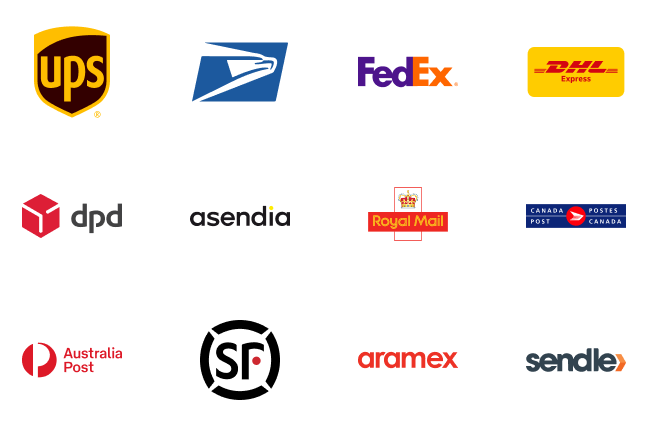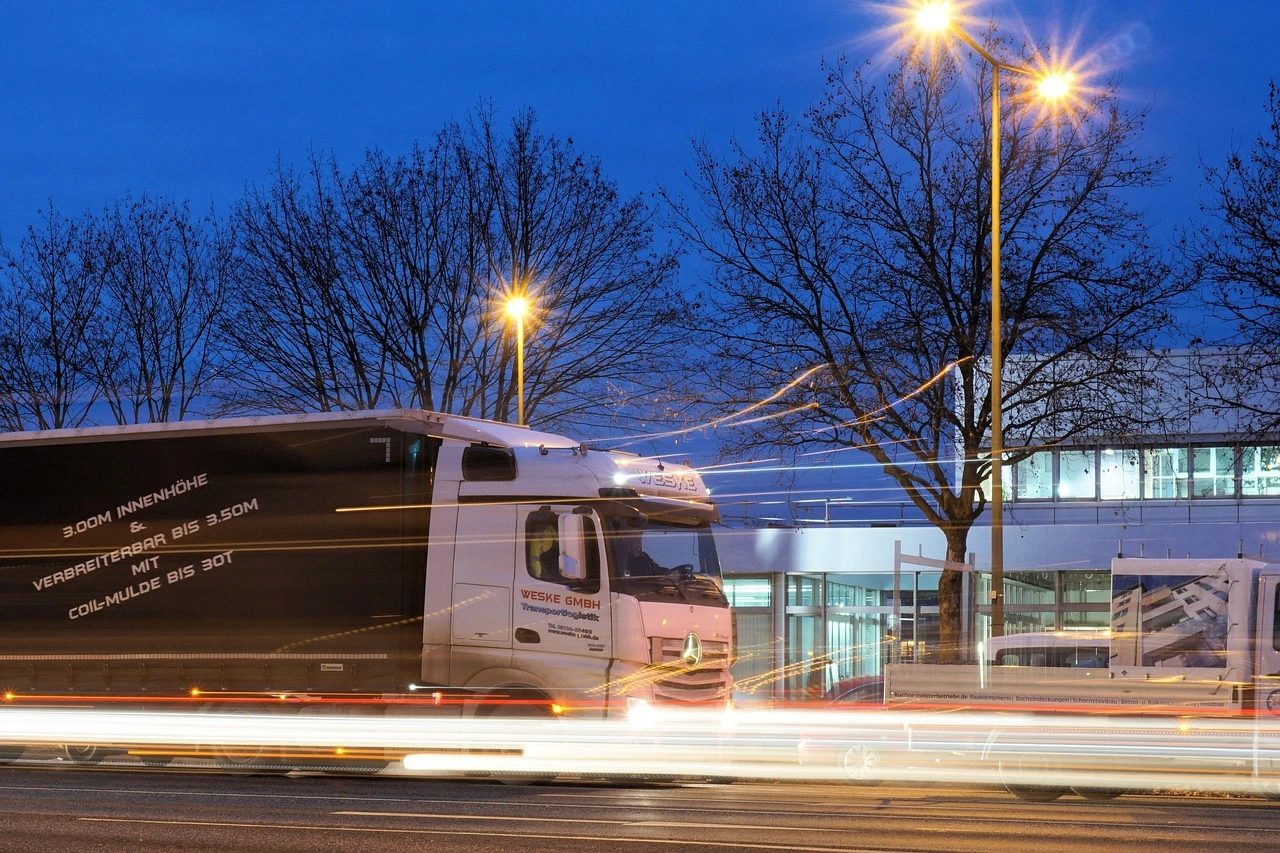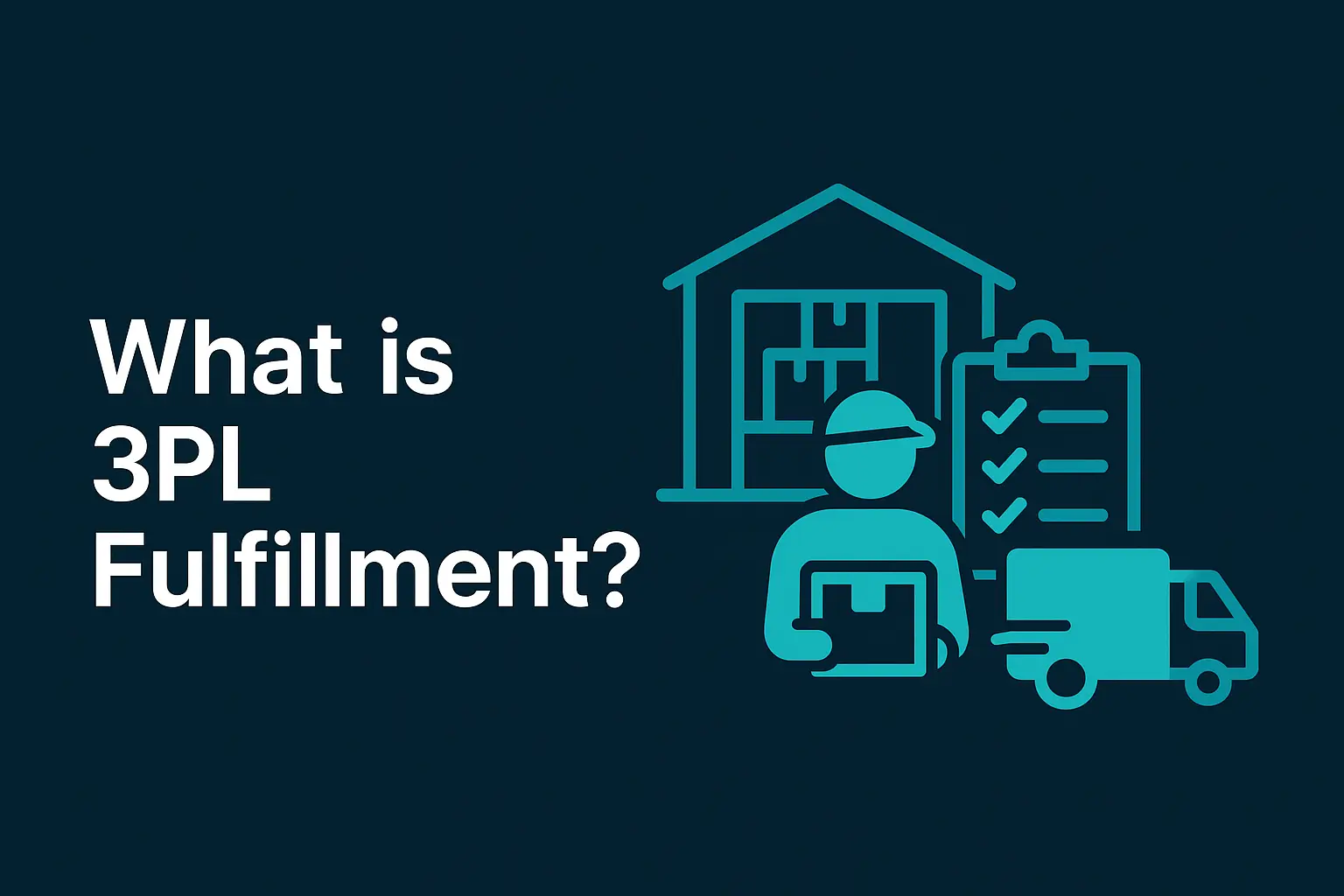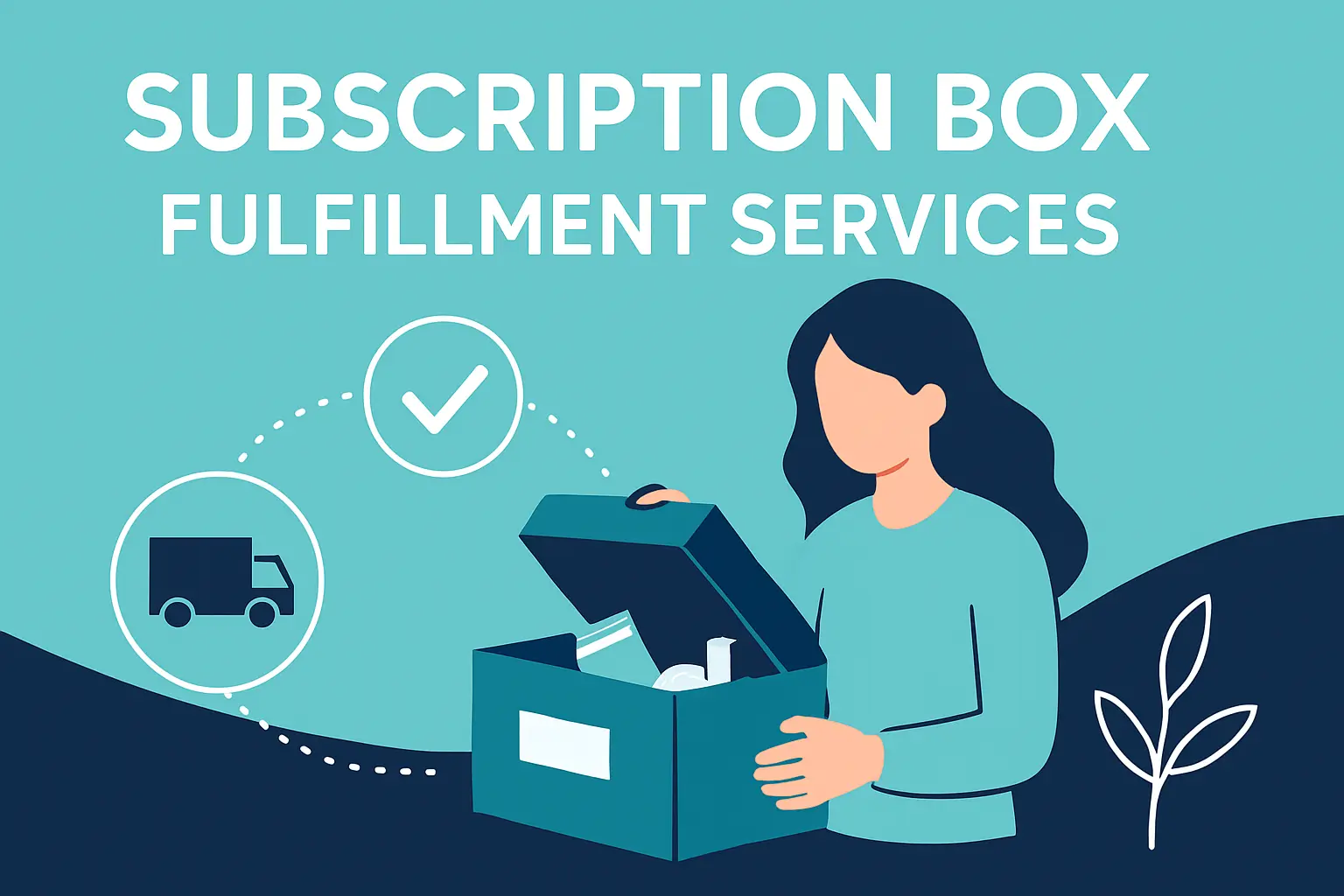Order fulfillment services are the backbone of how products move from seller to buyer in eCommerce. For B2B sellers (business to business), the process is more complex than direct-to-consumer (B2C) shipping.
It involves large quantities, such as bulk orders, strict deadlines, custom packaging, and specialized logistics that often require complex logistics solutions. If you run a small-to-medium-sized online store selling physical goods, understanding and choosing the right order fulfillment solution is key to scaling your business smoothly.
This guide explains what order fulfillment services are, how they work for B2B, how is it different from B2C, and how to choose a reliable provider.
What Are Order Fulfillment Services?
Order fulfillment services are third-party solutions that store, pack, and ship products on behalf of businesses, often utilizing fulfillment centers and distribution centers as the primary facilities. These services help eCommerce merchants reduce manual work, streamline logistics, and improve customer experience.
For B2B sellers, these services often include:
- Bulk product storage and warehousing
- Kitting or bundling items
- Scheduled freight shipping
- Custom labeling and packing slips
- Wholesale fulfillment, supporting bulk order distribution and specialized inventory management between suppliers and retailers
Unlike B2C, where packages go to individuals, B2B fulfillment typically involves shipments to distributors, retailers, or corporate buyers.
With Easyship, get upto 99.8% operational fulfillment accuracy so that you save more money and scale faster!
Why Order Fulfillment Matters for B2B Sellers
Small and mid-sized eCommerce businesses often manage tight margins, time constraints, and growing customer expectations. When you’re shipping to other businesses, the stakes are higher. Errors, delays, or inventory issues can damage relationships and lead to lost deals. Maintaining optimal inventory levels and effective inventory management can reduce these risks by ensuring products are available when needed and orders are processed accurately.
A reliable fulfillment partner:
- Reduces errors and delays
- Handles bulk and complex shipments
- Supports scalability as your order volume grows
- Improves customer satisfaction by ensuring timely and accurate deliveries
How B2B Fulfillment Works
The B2B order fulfillment process typically involves a series of fulfillment processes designed to efficiently manage and deliver orders, ensuring accuracy and timely delivery. The entire process can be managed in-house or outsourced to a third-party provider, depending on the needs and scale of the business.
1. Inventory Storage
You send your products to a fulfillment warehouse. They’re stored in secure racks or pallets and tracked with inventory software. Managing inventory is crucial for maintaining accuracy and efficiency, especially when handling large-scale B2B fulfillment. You can check your stock levels in real time.
Example: A kitchenware brand sends its products to a warehouse in Los Angeles. From there, they’re stored on labeled pallets and added to a digital dashboard, following warehouse management practices to ensure products are stored and retrieved correctly.
2. Order Management
When a buyer places an order, the system pulls the product SKUs and quantities. In B2B transactions, this process often begins with purchase orders, which formalize bulk ordering and long-term contracts. The warehouse team then picks the correct items from storage.
For instance, a buyer orders 200 stainless steel bowls. The system flags the items and bin locations, and the picker retrieves them accurately. For large or recurring orders, technology such as Easyship can automate order processing, streamlining fulfillment and improving efficiency.
3. Packing and Labeling
Items are packed based on your specs—whether it’s branded packaging, pallet wrapping, or adding documents like packing slips and barcodes. Value added services such as kitting and assembly can also be provided to enhance your fulfillment process. B2B shipments often require specific compliance labeling.
Consider a cosmetics shipment that includes MSDS documents, product codes, and expiration dates for each carton. Packaging can also be tailored to customer preferences, such as specific branding or compliance requirements. These are printed and attached before shipping.
4. Shipping
The fulfillment center schedules pickups with LTL (less-than-truckload), full truckload carriers, or couriers, depending on shipment size, selecting appropriate shipping methods and shipping carriers for B2B orders. They coordinate delivery slots and prepare bills of lading (BOLs).
5. Tracking and Delivery
Once shipped, the buyer receives tracking updates. In B2B fulfillment, it is crucial to meet agreed delivery times and adhere to service level agreements (SLAs) to ensure scheduled deliveries and maintain reliability. Some providers offer delivery confirmation or require signatures on arrival.
Key Differences: B2B vs. B2C Fulfillment
Business to business (B2B) fulfillment refers to the process of handling and shipping products from one business to another, often involving wholesale orders and specialized logistics for big box retailers. In contrast, business to consumer (B2C) fulfillment focuses on delivering products directly to individual customers or the end consumer, typically through e-commerce platforms.
| Category |
B2B Fulfillment |
B2C Fulfillment |
| Order Size and Volume |
Large-volume orders, often packed in pallets; typically wholesale orders for other businesses or big box retailers |
Small, individual orders sent to individual customers, individual consumers, or the end consumer |
| Delivery Coordination |
Pre-scheduled windows for warehouse delivery |
Flexible delivery to homes or pickup points |
| Compliance & Packaging |
Custom labeling, kitting, and documentation |
Standard boxes with shipping labels |
What to Look for in an Order Fulfillment Service
Choosing the right partner depends on your business needs. It’s important to select a provider that offers a comprehensive suite of fulfillment solutions and b2b fulfillment services to address the complexities of your supply chain and order management. Here’s what matters:
At the end of the day, the right provider will help you build a successful partnership and achieve cost efficiencies, ensuring your logistics operations support your business growth.
1. Freight and Pallet Capabilities
Ensure the provider can handle international shipments pallet wrapping, and warehouse staging, demonstrating large scale logistics capabilities.
2. Warehouse Locations
More locations mean faster delivery and lower shipping costs, and having multiple locations ensures broader geographic coverage for your shipments. Look for providers with hubs near your customers.
3. EDI and Technology Integration
B2B buyers often require Electronic Data Interchange (EDI) compliance. Integration with your eCommerce platform (e.g., Shopify, Amazon, NetSuite) is also a must. Enterprise resource planning (ERP) systems and cloud based platforms are essential for seamless order and inventory management, enabling integration of inventory, order processing, and logistics while supporting remote and mobile-friendly operations.
4. Real-Time Inventory Tracking
Inventory visibility avoids stockouts and delays. Real-time tracking supports a resilient supply chain, helps manage supply chains efficiently, and prevents supply chain disruptions. You should be able to view stock levels, order status, and inbound shipments anytime.
5. Customer Service and Support
Your fulfillment partner should offer reliable support, especially during peak seasons or if issues arise, with a strong focus on understanding and meeting the unique needs of business clients.
6 Step-by-Step: How to Set Up a Fulfillment Service
Getting started with a fulfillment provider involves a few key steps. By following these steps, you can significantly improve operational efficiency in your fulfillment operations.
Step 1: Define Your Requirements
Outline your SKUs, order volume, dimensions, and target delivery regions, and consider current market trends that may impact your fulfillment requirements. Know how much storage space and what kind of shipping you need.
Step 2: Research and Shortlist Providers
Look for experience in your niche, especially providers who understand the unique needs of an ecommerce business, good tech integrations, solid customer reviews, and locations that suit your delivery needs.
Step 3: Connect Your Storefront
Use APIs or pre-built connectors to link your eCommerce store or ERP, streamlining ecommerce fulfillment for both B2C and B2B orders. This ensures orders flow automatically to the fulfillment center.
Step 4: Send Your Inventory
Follow labeling and shipping guidelines provided by the fulfillment partner. Products should be clearly marked to match your system. Sending inventory in larger quantities may also qualify your business for bulk discounts from your fulfillment provider.
Step 5: Set Packing and Shipping Preferences
Let the provider know if you need special labels, branded packaging, or paperwork like customs forms or barcodes, including any special requirements for shipments to retail stores.
Step 6: Test the Workflow
Run a few trial orders. Make sure items are packed correctly, shipped on time, and customers are updated. Testing the workflow in this way helps enhance customer satisfaction by ensuring accuracy and reliability.
4 Benefits of Outsourcing B2B Fulfillment
If your current logistics process involves spreadsheets, manual packing, or trips to the post office, outsourcing offers major advantages:
- Save Time: Focus on sales, not shipping logistics
- Lower Costs: Eliminate warehouse rent, staff, and shipping inefficiencies, and achieve cost efficiencies through optimized logistics and freight consolidation
- Scalability: Handle growth, seasonality, and new markets with less effort
- Reduced Errors: Automation and expertise improve fulfillment accuracy
3 Common Challenges in B2B Fulfillment
Inventory Mismanagement
Without real-time tracking, you risk overstocking or stockouts, making it crucial to monitor inventory levels to avoid these issues.
Delivery Delays
Missed deadlines can strain relationships with business buyers, making it crucial to meet agreed delivery times in B2B fulfillment. Easyship's own fulfillment centres and worldwide network of 220+ eCommerce fulfillment partners helps you avoid delays and the mammoth costs that come with it!
Custom Requirements
Custom kitting, freight scheduling, and EDI labeling add complexity.
Working with a skilled 3PL (third-party logistics provider) reduces these risks.
3 Tips to Improve Fulfillment Operations
Even if you’re not ready to outsource, you can improve your process: efficient management of fulfillment operations is crucial for coordinating picking, packing, and shipping to ensure timely delivery to your customers.
Automate Order Syncing
Use software to auto-sync your online store with shipping labels and inventory, helping to automate order processing for greater efficiency.
Create SOPs
Standardize your packing, labeling, and shipping processes to avoid confusion.
Monitor KPIs
Track order accuracy, shipping speed, and fulfillment cost per order.
Prepare for Seasonal Peaks
Stock up early, hire temporary staff, and schedule pickups in advance.
5 Signs You Need a Fulfillment Partner
You may need outside help if:
- You’re shipping over 100 orders/month
- You’re running out of space to store inventory
- You spend too much time managing shipping
- You’re expanding into wholesale or retail partnerships
- Your growing business operations require more efficient fulfillment solutions
Final Thoughts
Order fulfillment services help B2B sellers ship accurately, scale confidently, and build stronger relationships with buyers. Whether you’re just starting or already shipping hundreds of orders monthly, the right fulfillment partner can make your operation more efficient and professional.
By understanding your options and setting up the right processes, you can improve fulfillment, reduce costs, and keep customers happy.
Experience Multi-location Warehousing with Easyship
Optimize your eCommerce fulfillment with help from our expert team. We’ll design a tailored warehousing and fulfillment plan to match your business goals.
- Affordable 3PL Solutions: Request a free quote—no commitment, just savings.
- Global Coverage: Ship to 220+ destinations with multi-location support.
- Cross-Border Expertise: Access proven strategies and international know-how. The best part? We offer strategic shipping services for overseas delivery so that you don’t pay unnecessary tariffs!
We offer a flexible eCommerce fulfillment approach with greater visibility and customization to fit your exact needs so that you can scale globally and save more.
Talk to Us!















































.svg)
.svg)






.avif)
.avif)

.avif)
.avif)


.avif)


.avif)










.avif)
.avif)



.avif)
.avif)


.avif)
.avif)


.avif)










.svg)











